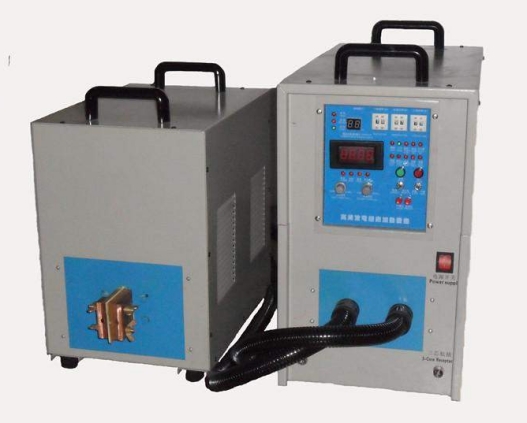- 28
- Dec
What are the quenching advantages of high-frequency quenching equipment itself
What are the quenching advantages of ಅಧಿಕ ಆವರ್ತನ ತಣಿಸುವ ಉಪಕರಣ ಸ್ವತಃ
The application of high-frequency quenching has been occupied in the metal industry for a long time, gradually replacing the traditional heat treatment equipment, and continuous technological development in the metal process to improve the work efficiency of the workpiece. Two types of intermediate frequency quenching equipment, which are similar to high-frequency quenching, have similar technological advantages, but different quenching equipment is selected according to different technological requirements. Today, let’s take a look at the quenching advantages of high-frequency quenching equipment.
High-frequency quenching mainly uses the principle of electromagnetic induction, and the induced current generated can carry out a series of heating, heat treatment and other processes on the workpiece. Then it has the characteristics and advantages that ordinary equipment does not have. The main outstanding advantages are:
1. The surface of the workpiece is not easy to be oxidized. Because of heating, the workpiece is easily in contact with oxygen, and the surface is oxidized, which will affect the heating effect of the workpiece. Instead, the high-frequency quenching process not only does not cause excessive oxidation, but the heating speed of the workpiece is also fast, which improves the work efficiency, and the workpiece itself is rarely deformed.
2. The standard of the surface hardened layer of the high-frequency quenching workpiece is within 1-1.5mm, which is not the same as the intermediate frequency quenching. The depth of the hardened layer of the intermediate frequency quenching can reach within 1-5mm, so the intermediate frequency quenching is It is used when high-frequency quenching cannot meet the process requirements. Of course, if it is a workpiece with a deeper hardened layer, we use the power-frequency quenching process.
3. The heating method of the equipment is non-contact heating, which can quickly heat the secondary deformed workpiece.
4. The quenching process of the workpiece can be automatically controlled, and it can be equipped with a quenching machine tool to achieve continuous quenching, segmented quenching and subsequent scanning. This method is very suitable for some workpieces with strict requirements.
5. The heat treatment process operation of high frequency quenching equipment is very simple and low in cost.

